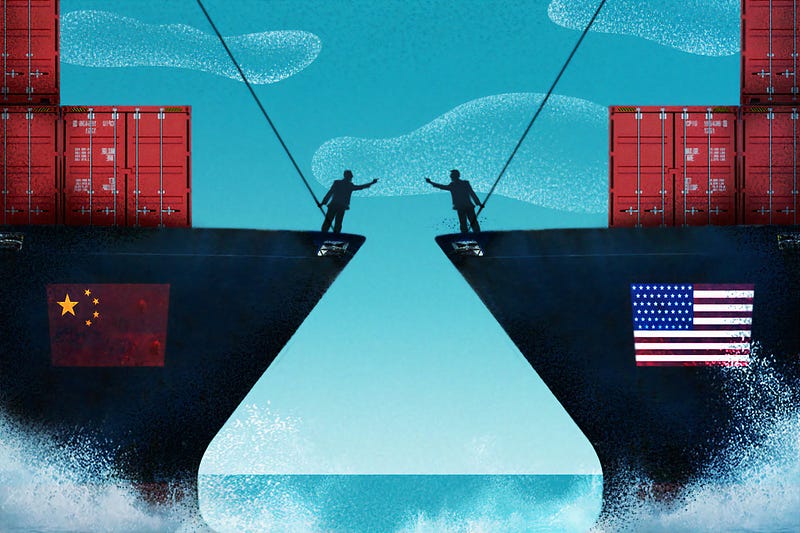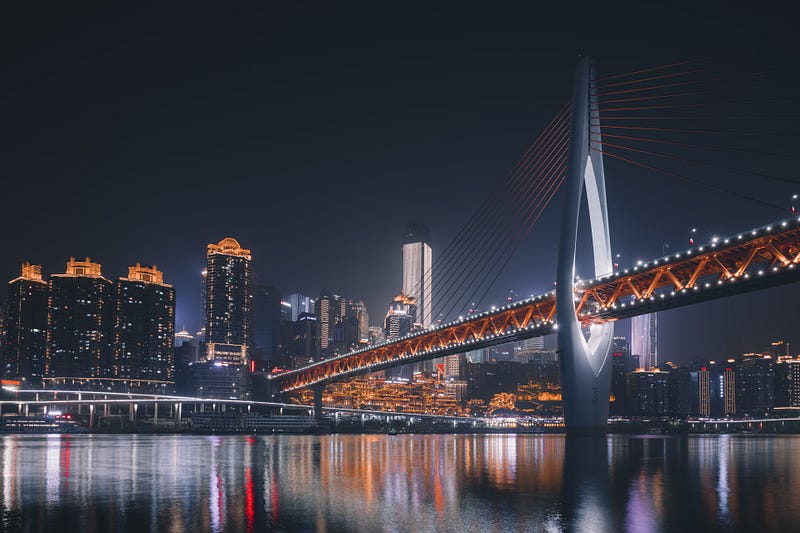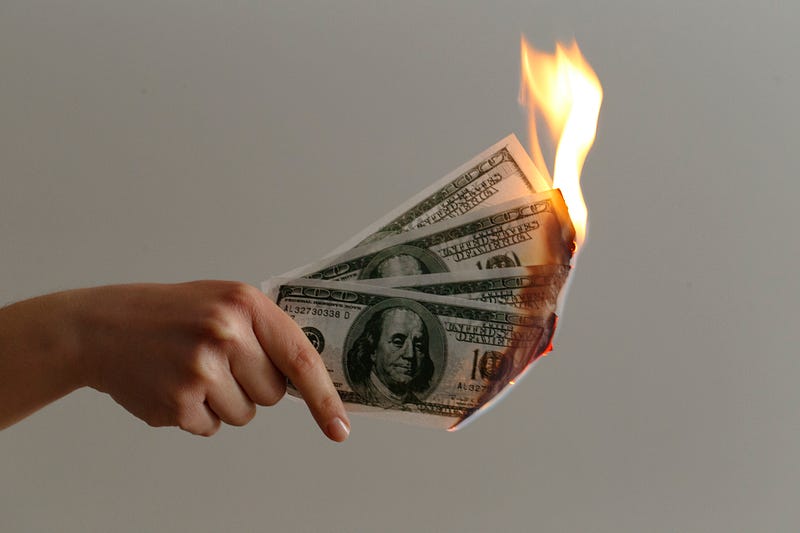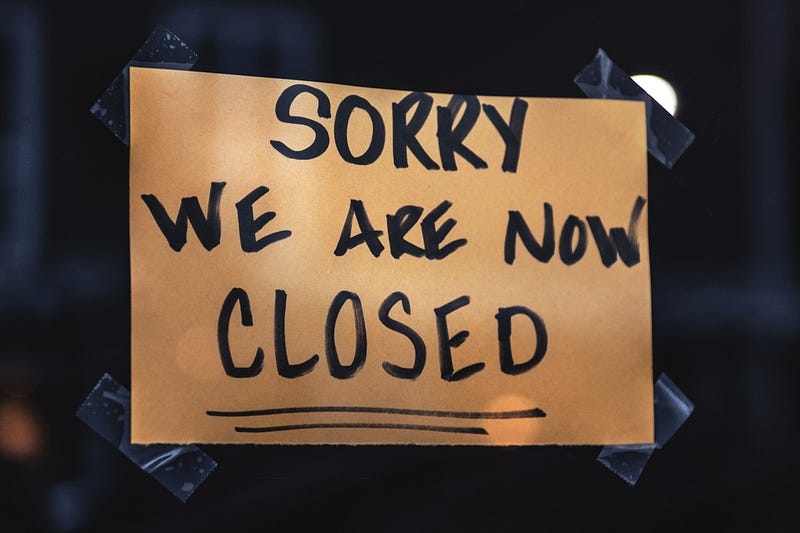A Discussion of “Deconstructing the Argument for Free Trade”
“If all the economists were laid end to end, they still would not reach a conclusion.”
“What happens when you get 10 economists in a room? You get 11 opinions.”
Or the old story of President Truman wishing for a one-armed economist because he got tired of hearing, “on the other hand” so much.
I can tell these old jokes because I am an economist. But the point is, you do not get much agreement out of economists, or even definite answers.
Unless you are talking free trade.
Now of course, you can find a few voices to speak against it, but as a profession, free trade is the one area that has close to universal, mainstream support that countries should look to lower barriers to trade like tariffs.
That is exactly what Driskill (2012) is deconstructing. Not necessarily because he wants to prove free trade wrong but because the arguments economists use to support their position are riddled with contradictions and fallacies. For the sake of the credibility of the profession, he is arguing for economists to clean up their arguments.
What Economists Say about Free Trade
In almost all introductory textbooks, discussion about the value of trade starts with the 2-person model from David Ricardo that allows us to show output is increased when the 2 people specialize in one good and trade for the other.
People have different talents and resources so each tends to have one good they are relatively better at producing. We call that comparative advantage. If each specializes in that good, the total output of goods is increased between the 2 people. Thus after trade, each party is at least as well off as before they specialize and in many cases they are better off.
This is the foundation of our argument that trade is good, or more specifically, voluntary trade is good. Driskill points out that we then take this model and apply it to 2 countries trading. That is where we run into problems.
Problems in Economists’ Arguments
First, there is the aggregation of welfare challenge:
…the problematic nature of deciding what constitutes something ‘good for the nation’ when not all members of the nation are helped…(p. 8)
When we talk about free trade between countries, we know that there will be winners and losers. For example, those who are part of an industry that exports goods will win from the increase in sales. But those who are part of an industry that is now competing more with imports may find themselves losing sales and shedding jobs.
How do you conclude it is good overall when there are some who lose? Welfare analysis is a tool we can turn to. For our purposes in this discussion, you can think of welfare as being income though it can be a broader term. The winners of free trade have an increase in income, and thus a welfare increase, while the losers have a decrease in both.
Economists can unequivocally say a policy is good when it leads to a Pareto improvement: no one is made worse off and at least one person is made better off.
But what can you conclude when a policy makes some better off and some worse off?
Theoretically, the winners of free trade could share some of their increase in income with the losers and with this compensation scheme, free trade can achieve a Pareto improvement.
Driskill calls this the Compensation Challenge. (p. 8) Essentially economists are implying in their free trade arguments that because this compensation could be done then free trade could be a Pareto improvement, and thus free trade is good — without actually implementing the compensation.
Why? Identifying winners and losers is not easy. Did you lose your job because of free trade or was it because of automation?
Plus, getting the resources from the winners to the losers is going to require some sort of administrative program that will consume some of the gains.
One way economists have dealt with this compensation challenge is shown in a Paul Samuelson textbook Driskill cites. Essentially the argument is that there are a lot of changes happening in the economy that are fairly independent of each other.
- One change could be a policy towards lower tariffs that increase free trade in one or several industries.
- But at the same time there could be technological advances that could also cause winners and losers.
As you aggregate all these changes in the economy, chances are each person will be both a winner and a loser across the different situations. It sort of averages out on the bigger scale.
Since all of these changes are also helping the overall economy grow, the “size of the pie” is growing. Thus, in an overall sense, it is reasonable to assume people are better off with such policies in totality. The standard of living is rising and in general anyone who is a loser due to one reason has it offset by gains in other areas.
However, while it may be true on average, it does not rule out the likelihood of some unlucky souls being the loser in aggregate.
Thus mainstream economics moves forward with the argument that free trade is good without acknowledging they can only make that conclusion with a value judgement that the benefits outweigh the losses. Driskill asserts that is not a good argument.
What might be elements of a good argument?
Driskill says economists need to stipulate up front that any advocacy for free trade involves some value judgments. (p. 25) The aggregation of welfare challenge cannot be solved without placing some value on the gains and losses.
Next, economists need to recognize that free trade is not a one-time choice. A free trade advocate should be open to individual cases where exceptions may prove better. (p. 26)
They need to acknowledge fairness, which Driskill says is treating similar people in similar ways. (p. 27) Why should workers who lose their jobs in import-competing industries be compensated but not workers who lose their jobs to new technology?
Economists can focus on other reasons to argue for free trade such as lowering the danger of war. (p. 27) Post World War II, the multilateral institutions like the WTO, World Bank, and IMF, were envisioned as a way to grow economic interdependence among countries to lower the likelihood of war.
Finally, Driskill recommends economists emphasize trade-offs, an area in which economists are well-trained.
Here he is saying the field should point out that lowering trade barriers will increase exports and jobs in export-oriented industries, but the trade off is fewer jobs in import-competing industries. And, prices can be lower for imported goods but the trade-off is they tend to rise in exported goods.
Most mainstream economic texts do address these issues already, but Driskill is saying that economists need to stop there and not go on to state or imply that free trade is good.
What economists are good at and trained for is to see the trade-offs involved in different policy choices. These trade-offs are not obvious to the non-economists…But frequently the best advice we can give is a menu of effects that flow from different choices. Trying to come up with a valid measure of the net effects is above our expertise. (p. 28)
When it is time to teach the theory of free trade, a discussion of trade-offs without a conclusion one way or another between free trade and protectionism is more intellectually honest.
Economists are certainly welcome to be free trade advocates, but Driskill is saying the only way to get there is to make value judgments. To pretend the theory alone is clearly supportive of free trade is a step too far.
Driskill’s article is aimed more at economists improving their arguments in an academic sense, but it reminds me of another article I discussed that cautions economists not to take their theories too far. Economists should offer guidance to policymakers but need to keep an eye on the political limits of economics.
I think these inward focused pieces are examples of what every field needs to do regularly as a way to check biases and faulty reasoning that can slip into any field.
References: Driskill, Robert A. (2012). “Deconstructing the Argument for Free Trade: A Case Study of the Role of Economists in Policy Debates.” Economics and Philosophy, 28: 1–30




